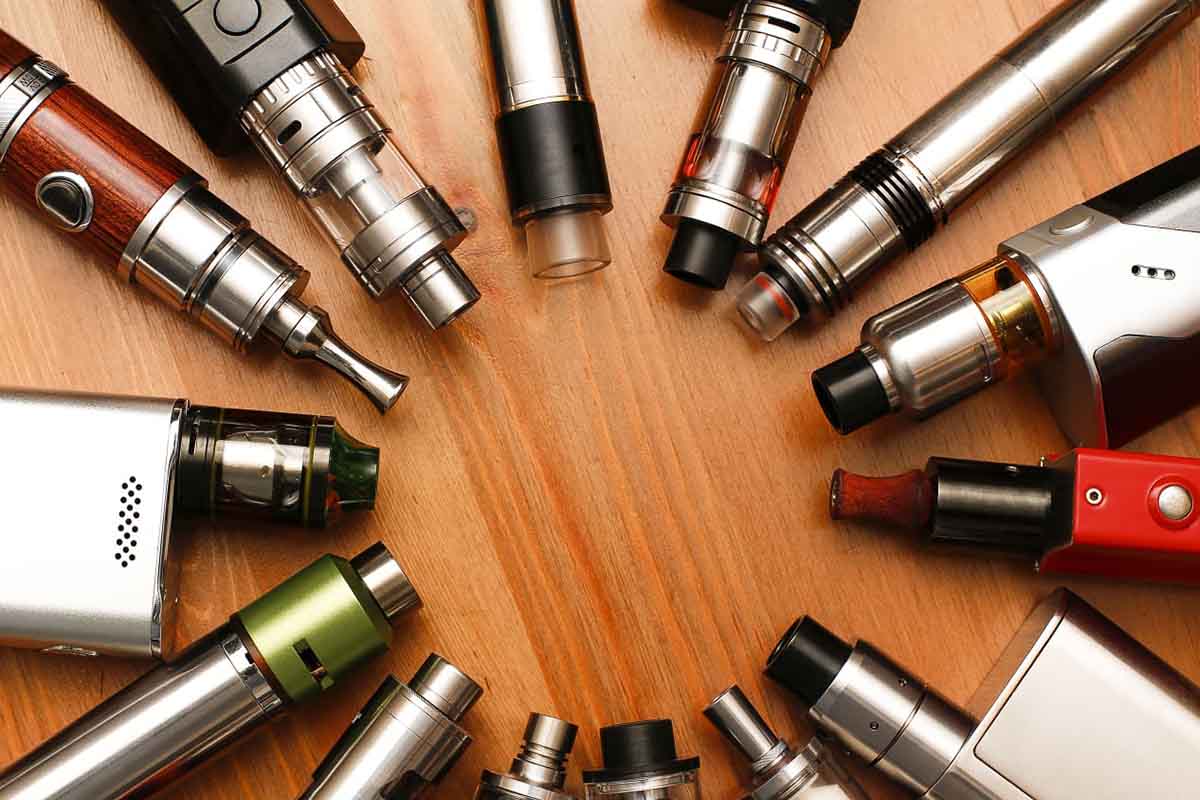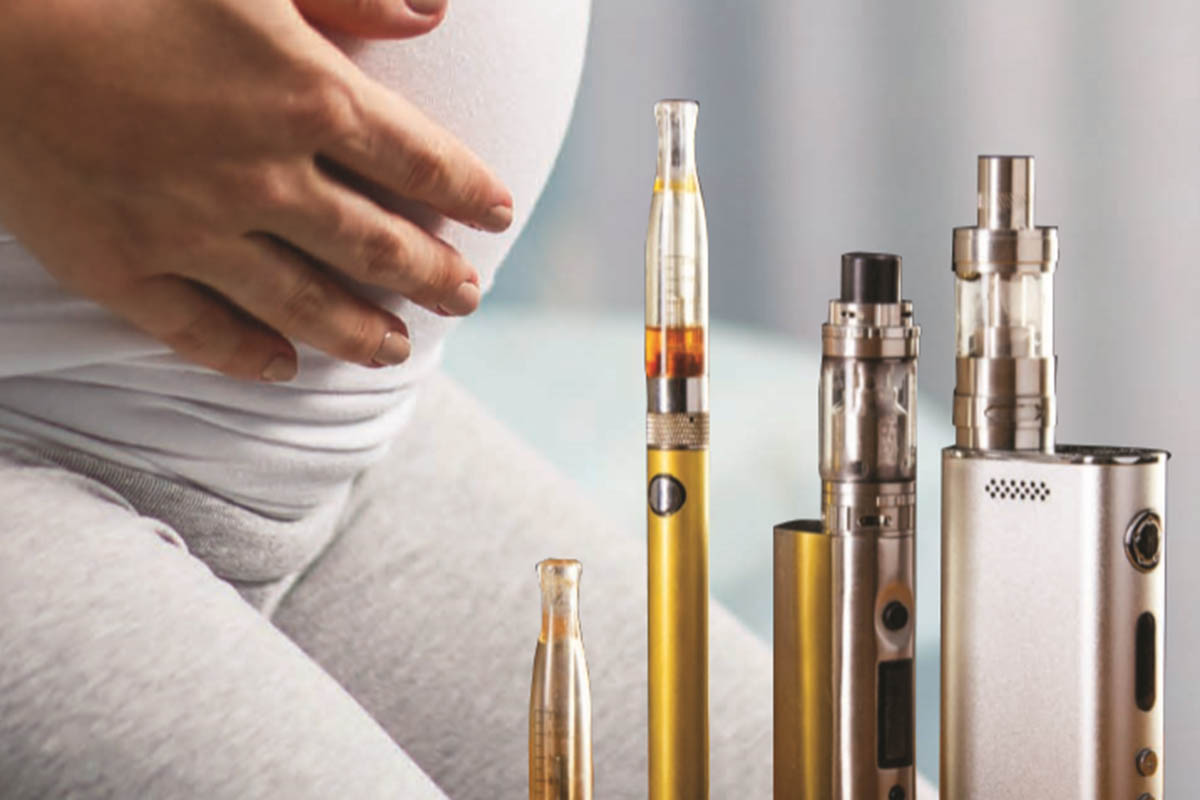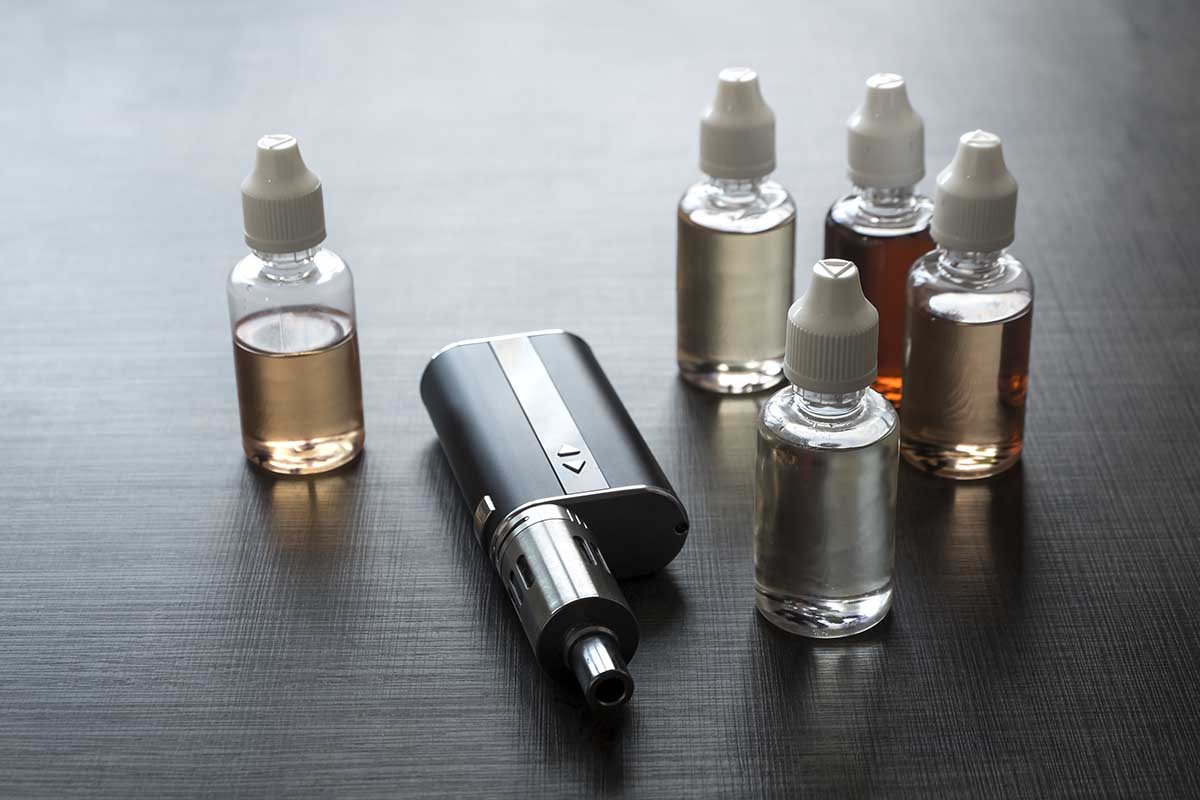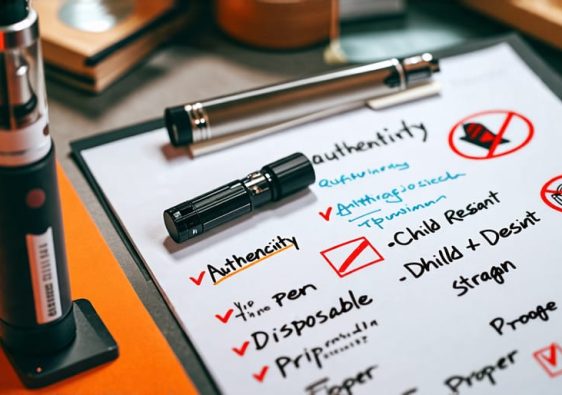Treating bipolar disorders could be tricky—especially with traditional methods. But with the surge of research surrounding CBD, people are exploring alternatives to conventional treatments.
There might be a beneficial connection between bipolar disorder and CBD. So, we intend to pull this thread and answer the question: does CBD help with bipolar?
Before we get started, let’s review the basics of bipolar disorder and why people turn to cannabinoids like CBD to relieve symptoms.
What Is Bipolar Disorder?
Bipolar disorder, formerly manic depression, refers to mental health disorders that cause intense shifts in moods, behavior, and energy levels. It’s categorized by periods of depressive episodes or manic episodes. This could cause extreme happiness and irritability—and bipolar depression—is characterized by sadness and hopelessness.
Or sometimes, it may be as severe as major depressive disorder. People who have bipolar disorder often struggle to carry out daily activities.
There are three major types of bipolar categories: cyclothymic, bipolar i, and bipolar ii disorder.
If you’ve been diagnosed with bipolar disorder, medical professionals might suggest various treatment options, including psychotherapy, lifestyle changes, and medication.
But more recently, many are turning to CBD as an alternative to treat bipolar disorder. But what does science say about using Cannabidiol to help address the symptoms associated with bipolar disorder? Let’s see…
What Is CBD?
If you’re considering adding CBD to your bipolar treatment plan, the first step is understanding what it is. Cannabidiol, or CBD, is a compound derived from the cannabis plant.
Unlike marijuana, however, it doesn’t get you high, and its benefits are backed by science. It has calming effects and works as an anti-inflammatory—all without the psychoactive effects of marijuana.
CBD can come in multiple forms, like tinctures, oils, creams, and edibles like gummies and chocolates. This makes it both versatile and easy to access.
You can shop in your local health food store, purchase CBD products online from reliable sources or even visit a dispensary (if allowed in your state).
One of the most popular ways to take CBD is through vaping because this method gets more of the compound into your system than other types of consumption.
Whichever form you choose, what remains consistent about Cannabidiol is its potential to relieve depression, anxiety, and other mental health issues like bipolar disorder.
How Does CBD Help With Bipolar Disorder
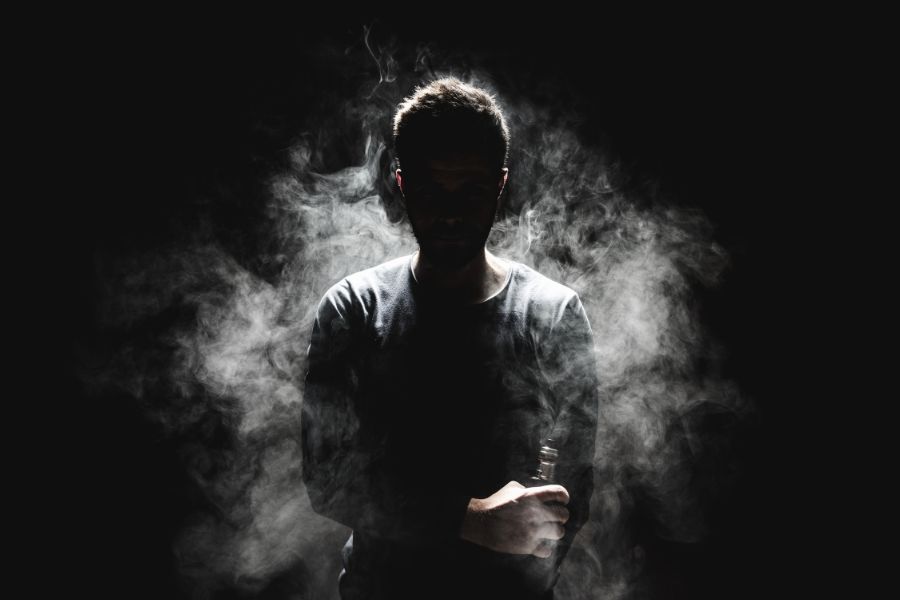
CBD Reduces Manic Depression in Bipolar Patients
You might be surprised that CBD could benefit people with bipolar affective disorder. Evidence is starting to mount that micro-dosing with CBD could limit the intensity of major depressive episodes in this population.
What Do Studies Say?
While research on the effect of CBD on people with bipolar disorder is still new, early clinical trials proved a reduction in the symptoms.
A study found that participants treated with 1000mg of pharmaceutical-grade CBD for six weeks showed significant improvements in symptoms compared to those who didn’t receive the treatment. But more research is needed before we can definitively say whether or not it’s truly effective.
That being said, results from other studies suggest that CBD might be beneficial for managing manic or major depressive episodes. So this is good news if you’re looking for a natural alternative to traditional medications. It might be worth exploring how adding a few drops of CBD oil into your daily routine could support your mental health journey.
CBD Inhibits Depression Symptoms in People With Bipolar
Moreover, studies have also found that CBD may potentially manage mood disorders associated with bipolar disorder. In one study, researchers found that people with depression benefited from CBD supplements. And they experienced reduced symptom severity after some time.
The potential benefits of using CBD to manage depression symptoms for people with bipolar are multi-faceted. Here are just a few:
- It could help reduce stress levels and potentially improve mood
- It could help improve focus and concentration
- It could possibly reduce anxiety levels
- It may support healthy sleep patterns
- And most importantly, it may lead to better overall mental health management
Improves Sleep for People With Bipolar Disorder
Sleep disturbances are common in bipolar disorder. So improving sleep quality is a significant priority for many people with the condition. Fortunately, CBD may be able to help.
Cannabidiol has sedative effects, which could boost sleep quality and duration, potentially leading to better mental and physical health.
It can also treat mood swings, irritability, and cognitive difficulty, often resulting from a lack of restful sleep. Moreover, research has indicated that better quality sleep causes lower levels of stress hormones. This is undoubtedly a positive sign for people with bipolar disorder who often suffer from chronic stress.
Overall, CBD is an exciting therapeutic option for people looking for an alternative way to refine their quality of life.
Possible Side Effects of Using CBD for Bipolar Disorder
Similar to other mental disorders, mood or bipolar disorder drugs have possible side effects. Thus, it would help if you watched out for these side effects when using CBD for bipolar disorder:
Drowsiness
CBD causes drowsiness in some people. Knowing how it affects you is essential, especially if you plan to drive or operate heavy machinery while taking CBD. It could hinder you from effectively carrying out your daily duty.
GI Effects
CBD can often cause stomach issues like nausea, vomiting, and diarrhea in some people. If you are taking other medications or supplements, check with your doctor before taking CBD, as it could interact with them and cause adverse reactions.
Changes in Blood Pressure
There have been reports of CBD-related changes in blood pressure in some people. So if you have a history of heart-related conditions or are using medication for high blood pressure, talk to your doctor before adding CBD to your routine.
Dry Mouth and Dry Eyes
Some people have reported experiencing dry mouth or dry eyes when taking CBD. But this can be remedied. Just drink plenty of water to ensure you aren’t dehydrated.
While the side effects listed above are generally mild, we suggest talking to your doctor before trying anything new relating to your health—especially when bipolar disorder is involved!
How to Use CBD for Bipolar Disorder: Dosage and Methods
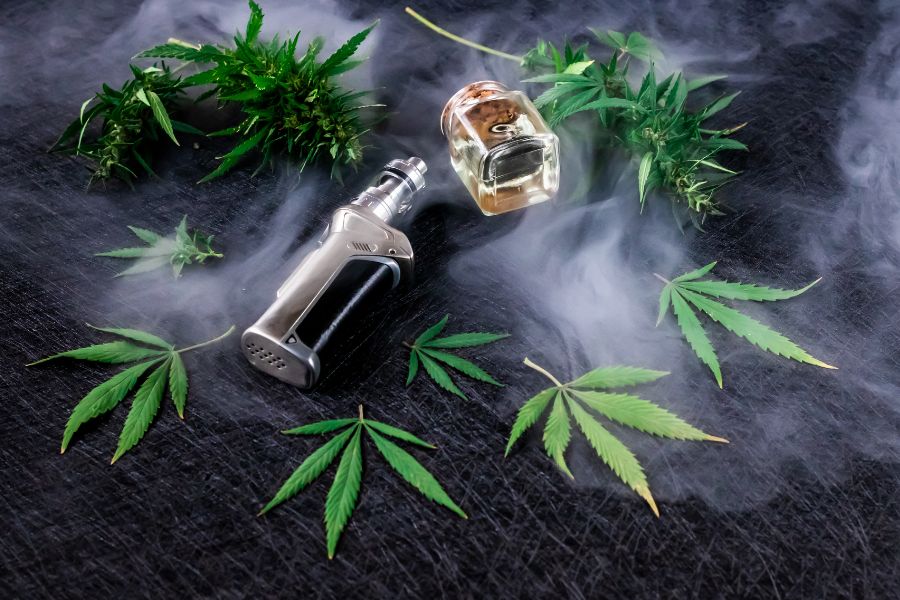
If you’re looking for potential relief from anxiety disorders, you may be exploring CBD. And you should know that there are several methods for taking Cannabidiol.
However, it’s best to consult your doctor first and treat CBD as a supplement rather than a replacement for prescribed medications.
Dosage
The effective dosage of CBD for treating bipolar disorder will vary from individual to individual. It hinges on factors such as body weight and the severity of symptoms.
Like any other supplement or medication, your best bet is to start with a low dose and gradually increase it until the desired effect has been achieved.
Methods of Use
CBD can be consumed in various ways, such as vaping, tinctures (oral drops), capsules, or edibles.
Vaping CBD is one of the quickest ways to enter your bloodstream. But research shows that oral ingestion is still more efficient than inhalation. That’s because more CBD will reach target sites at lower doses due to its longer metabolic life in your body.
In either case, its effects should kick in between 20 minutes to an hour after ingestion, lasting for about four hours.
Is CBD Legal In Canada?
CBD is renowned for being a potential remedy for various physical and mental health conditions.
However, it would be best if you explored other options to manage bipolar disorder symptoms effectively.
Medication Options
Traditional medications like mood stabilizers, antipsychotics, and antidepressants are widely prescribed for bipolar disorder.
Consulting with a mental health professional can help you determine the most suitable medication regimen for your depressive episodes.
Psychotherapy
Therapeutic approaches like cognitive-behavioral therapy (CBT) or dialectical behavior therapy (DBT) often successfully manage bipolar symptoms.
These therapies focus on developing coping skills, improving emotional regulation, and identifying triggers.
Lifestyle Modifications
Incorporating healthy lifestyle changes significantly aids bipolar disorder management. Regular exercise, a balanced diet, sufficient sleep, stress reduction techniques (like mindfulness or meditation), and a stable daily routine can all improve symptoms.
Support Networks
Building a solid support system can be invaluable. Connecting with support groups, friends, family, or online communities exposes you to encouragement and a sense of belonging.
Alternative Therapies
Several alternative therapies have shown promise in managing bipolar disorder. These include acupuncture, yoga, art therapy, and herbal supplements.
Conclusion: Does CBD Help with Bipolar Disorder?
CBD has not been conclusively proven to cure bipolar disorder but can potentially manage bipolar symptoms.
So, does CBD help with bipolar disorder?
Research indicates it may reduce symptoms of anxiety and depression, which are often associated with bipolar disorder.
Remember, you must consult your doctor or mental health professional before starting a CBD regimen. When you get a green light, get the most suitable Cannabidiol products that suit your taste!

